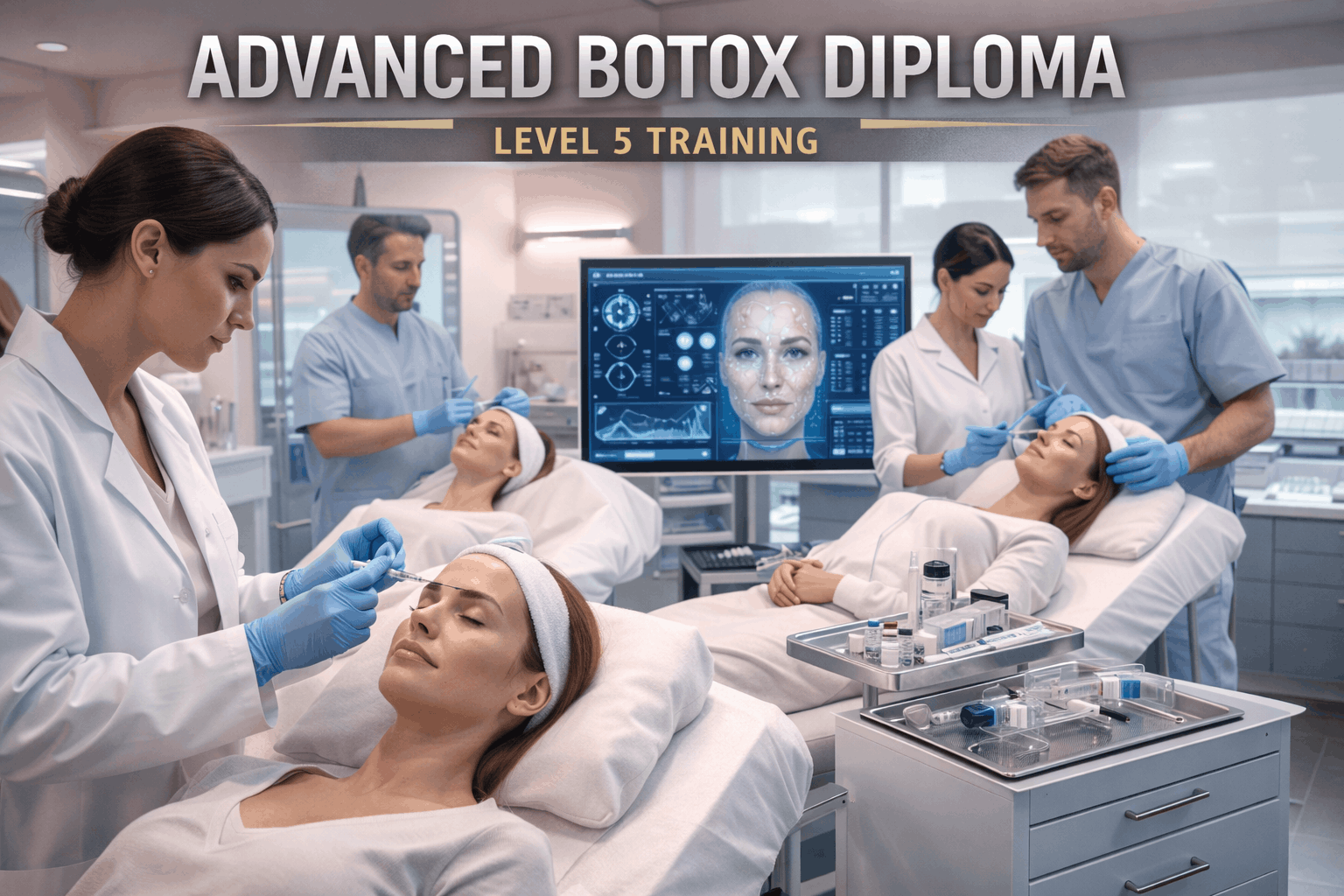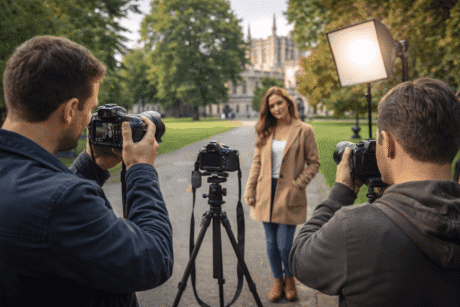Course Features
Price
Study Method
Online | Self-paced
Course Format
Reading Material - PDF, article
Duration
6 hours, 5 minutes
Qualification
No formal qualification
Certificate
At completion
Additional info
Coming soon
- Share
Overview
The Art Conservation Diploma provides an in-depth understanding of how artworks, artefacts, and heritage objects are preserved for future generations. This Level 3 programme covers the ethical, scientific, and practical foundations of conservation, combining hands-on techniques with theoretical knowledge. Learners will explore materials science, environmental monitoring, and advanced restoration methods used in museums and galleries worldwide.
Through modules on painting, textile, metal, ceramic, and archaeological conservation, you’ll gain the expertise to identify deterioration causes, conduct condition assessments, and apply appropriate treatment methods. The course also highlights research skills, professional ethics, and project management, ensuring you are equipped to handle real-world conservation projects with confidence and integrity.
Each lecture is designed to simulate professional studio environments where learners study microscopy, documentation, and treatment processes used by leading conservation specialists. You’ll also learn about the evolving challenges of contemporary and electronic media conservation, ensuring your skills remain relevant in modern practice.
By completing this course, you will develop a strong understanding of how art and science intersect to protect cultural heritage. Whether you aim to pursue a career in restoration or enhance your knowledge for academic or museum roles, this course provides both the theoretical and practical grounding to succeed.
Learners will receive a free course completion certificate, and multiple premium certificate and transcript options are available for purchase for those seeking accredited recognition. Dedicated 5-star rated support is available 24/7 via email, ensuring assistance whenever you need it.
Who is this course for?
The Art Conservation Diploma provides an in-depth understanding of how artworks, artefacts, and heritage objects are preserved for future generations. This Level 3 programme covers the ethical, scientific, and practical foundations of conservation, combining hands-on techniques with theoretical knowledge. Learners will explore materials science, environmental monitoring, and advanced restoration methods used in museums and galleries worldwide.
Through modules on painting, textile, metal, ceramic, and archaeological conservation, you’ll gain the expertise to identify deterioration causes, conduct condition assessments, and apply appropriate treatment methods. The course also highlights research skills, professional ethics, and project management, ensuring you are equipped to handle real-world conservation projects with confidence and integrity.
Each lecture is designed to simulate professional studio environments where learners study microscopy, documentation, and treatment processes used by leading conservation specialists. You’ll also learn about the evolving challenges of contemporary and electronic media conservation, ensuring your skills remain relevant in modern practice.
By completing this course, you will develop a strong understanding of how art and science intersect to protect cultural heritage. Whether you aim to pursue a career in restoration or enhance your knowledge for academic or museum roles, this course provides both the theoretical and practical grounding to succeed.
Learners will receive a free course completion certificate, and multiple premium certificate and transcript options are available for purchase for those seeking accredited recognition. Dedicated 5-star rated support is available 24/7 via email, ensuring assistance whenever you need it.
Requirements
The Art Conservation Diploma provides an in-depth understanding of how artworks, artefacts, and heritage objects are preserved for future generations. This Level 3 programme covers the ethical, scientific, and practical foundations of conservation, combining hands-on techniques with theoretical knowledge. Learners will explore materials science, environmental monitoring, and advanced restoration methods used in museums and galleries worldwide.
Through modules on painting, textile, metal, ceramic, and archaeological conservation, you’ll gain the expertise to identify deterioration causes, conduct condition assessments, and apply appropriate treatment methods. The course also highlights research skills, professional ethics, and project management, ensuring you are equipped to handle real-world conservation projects with confidence and integrity.
Each lecture is designed to simulate professional studio environments where learners study microscopy, documentation, and treatment processes used by leading conservation specialists. You’ll also learn about the evolving challenges of contemporary and electronic media conservation, ensuring your skills remain relevant in modern practice.
By completing this course, you will develop a strong understanding of how art and science intersect to protect cultural heritage. Whether you aim to pursue a career in restoration or enhance your knowledge for academic or museum roles, this course provides both the theoretical and practical grounding to succeed.
Learners will receive a free course completion certificate, and multiple premium certificate and transcript options are available for purchase for those seeking accredited recognition. Dedicated 5-star rated support is available 24/7 via email, ensuring assistance whenever you need it.
Career path
The Art Conservation Diploma provides an in-depth understanding of how artworks, artefacts, and heritage objects are preserved for future generations. This Level 3 programme covers the ethical, scientific, and practical foundations of conservation, combining hands-on techniques with theoretical knowledge. Learners will explore materials science, environmental monitoring, and advanced restoration methods used in museums and galleries worldwide.
Through modules on painting, textile, metal, ceramic, and archaeological conservation, you’ll gain the expertise to identify deterioration causes, conduct condition assessments, and apply appropriate treatment methods. The course also highlights research skills, professional ethics, and project management, ensuring you are equipped to handle real-world conservation projects with confidence and integrity.
Each lecture is designed to simulate professional studio environments where learners study microscopy, documentation, and treatment processes used by leading conservation specialists. You’ll also learn about the evolving challenges of contemporary and electronic media conservation, ensuring your skills remain relevant in modern practice.
By completing this course, you will develop a strong understanding of how art and science intersect to protect cultural heritage. Whether you aim to pursue a career in restoration or enhance your knowledge for academic or museum roles, this course provides both the theoretical and practical grounding to succeed.
Learners will receive a free course completion certificate, and multiple premium certificate and transcript options are available for purchase for those seeking accredited recognition. Dedicated 5-star rated support is available 24/7 via email, ensuring assistance whenever you need it.
-
- Introduction to Conservation Ethics 00:10:00
- Ethics and Values in Conservation Practice 00:10:00
- Legal and Ethical Considerations in Conservation 00:10:00
- Professional Practice Standards and Guidelines 00:10:00
- The Role of Conservators in the Cultural Heritage Sector 00:10:00
-
- Overview of Materials Science 00:10:00
- Material Properties and Behaviour 00:10:00
- Deterioration Mechanisms 00:10:00
- Analytical Techniques for Art Conservation 00:10:00
- Use of Microscopy in Art Conservation 00:10:00
- Advanced Examination Techniques 00:10:00
- Conservation Treatments of Painting Materials 00:10:00
- Conservation Treatments of Organic Materials 00:10:00
- Conservation Treatments of Inorganic Materials 00:10:00
- Conservation Treatments of Textiles and Paper 00:10:00
- Importance of Research and Documentation in Conservation 00:10:00
- Techniques for Documentation and Condition Assessment 00:10:00
- Technical Imaging Techniques 00:10:00
- Environmental Monitoring and Control 00:10:00
- Ethics and Legal Issues in Research 00:10:00
- Exam of Art Conservation Level 3 Advanced Diploma 00:50:00

No Reviews found for this course.
Is this certificate recognized?
Yes, our premium certificate and transcript are widely recognized and accepted by embassies worldwide, particularly by the UK embassy. This adds credibility to your qualification and enhances its value for professional and academic purposes.
I am a beginner. Is this course suitable for me?
Yes, this course is designed for learners of all levels, including beginners. The content is structured to provide step-by-step guidance, ensuring that even those with no prior experience can follow along and gain valuable knowledge.
I am a professional. Is this course suitable for me?
Yes, professionals will also benefit from this course. It covers advanced concepts, practical applications, and industry insights that can help enhance existing skills and knowledge. Whether you are looking to refine your expertise or expand your qualifications, this course provides valuable learning.
Does this course have an expiry date?
No, you have lifetime access to the course. Once enrolled, you can revisit the materials at any time as long as the course remains available. Additionally, we regularly update our content to ensure it stays relevant and up to date.
How do I claim my free certificate?
I trust you’re in good health. Your free certificate can be located in the Achievement section. The option to purchase a CPD certificate is available but entirely optional, and you may choose to skip it. Please be aware that it’s crucial to click the “Complete” button to ensure the certificate is generated, as this process is entirely automated.
Does this course have assessments and assignments?
Yes, the course includes both assessments and assignments. Your final marks will be determined by a combination of 20% from assignments and 80% from assessments. These evaluations are designed to test your understanding and ensure you have grasped the key concepts effectively.
Is this course accredited?
We are a recognized course provider with CPD, UKRLP, and AOHT membership. The logos of these accreditation bodies will be featured on your premium certificate and transcript, ensuring credibility and professional recognition.
Will I receive a certificate upon completion?
Yes, you will receive a free digital certificate automatically once you complete the course. If you would like a premium CPD-accredited certificate, either in digital or physical format, you can upgrade for a small fee.
Course Features
Price
Study Method
Online | Self-paced
Course Format
Reading Material - PDF, article
Duration
6 hours, 5 minutes
Qualification
No formal qualification
Certificate
At completion
Additional info
Coming soon
- Share
Botox Level 5 Advanced Diploma
Course Line244£490.00Original price was: £490.00.£14.99Current price is: £14.99.Statistics Level 3 Advanced Diploma
Course Line237£490.00Original price was: £490.00.£14.99Current price is: £14.99.Financial Statement Analysis – Mastering the Art of Reading Reports
Course Line237£490.00Original price was: £490.00.£14.99Current price is: £14.99.
Related Courses
Professional Photography Masterclass: Camera, Lighting, Composition & Portraits
£490.00Original price was: £490.00.£14.99Current price is: £14.99. 237
237Adobe Photoshop CC MasterClass: From Beginner to Advanced Digital Artist
£490.00Original price was: £490.00.£14.99Current price is: £14.99. 237
237DSLR & Mirrorless Photography: Master Exposure, Focus & Flash
£490.00Original price was: £490.00.£14.99Current price is: £14.99. 237
237
Related Courses
Professional Photography Masterclass: Camera, Lighting, Composition & Portraits
£490.00Original price was: £490.00.£14.99Current price is: £14.99. 237
237Adobe Photoshop CC MasterClass: From Beginner to Advanced Digital Artist
£490.00Original price was: £490.00.£14.99Current price is: £14.99. 237
237DSLR & Mirrorless Photography: Master Exposure, Focus & Flash
£490.00Original price was: £490.00.£14.99Current price is: £14.99. 237
237








